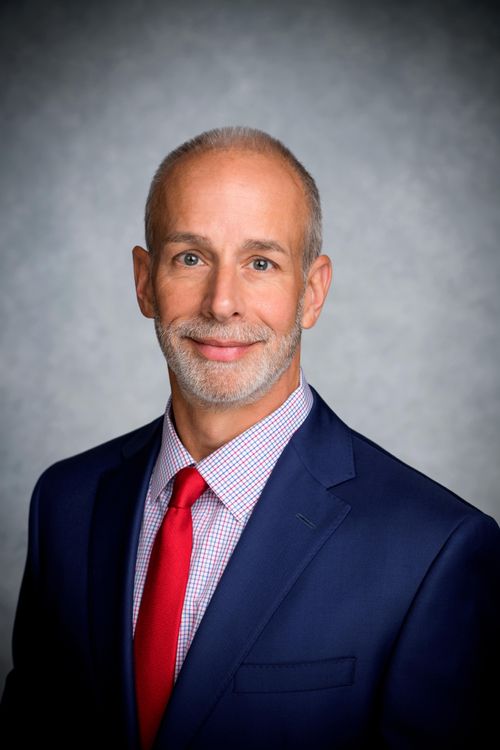Practice Areas
When Should You Contact a Rideshare Sexual Assault Lawyer?
It is important to contact an attorney as soon as you are safely able to after a rideshare sexual assault incident. A lawyer can reassure you of your rights, meet strict legal deadlines on your behalf, and gather evidence or handle communications so that they don’t re-traumatize you.
There is an enormous amount of trust involved in entering someone else’s vehicle for a ride. Companies like Uber and Lyft facilitate those interactions, and have a responsibility to make sure their drivers are thoroughly vetted and properly trained for customer safety. If you were sexually harassed or assaulted during a rideshare encounter, you can assert your rights under the law.
Pittman, Dutton, Hellums, Bradley & Mann, P.C. is headquartered in Birmingham, AL, with nationwide reach when it comes to large companies and corporations. This includes entities like Lyft and Uber which operate in every state and facilitate rides that can cross state lines.
If you are ready to speak with a legal professional about what happened, call us directly at (205) 322-8880, or schedule an appointment online. Your communications with us are 100% confidential, and carry no obligation on your part. Your consultation to explore your legal options is completely free.
Read on to learn more about rideshare sexual assault lawsuits and your rights in dealing with Uber, Lyft, and other similar companies.

Do I Have a Viable Claim for Sexual Assault or Abuse?
If you were sexually harassed, assaulted, or otherwise harmed or threatened during a rideshare encounter, your injuries are real, and are absolutely worthy of legal consideration. Consulting with an attorney is the first step in evaluating your situation and what kind of claim you could bring against Uber or Lyft to account for the damage done.
Filing a lawsuit is your choice to make, and could result in compensation that covers:
Medical bills associated with both physical and psychological treatment
Lost wages or other job-related benefits like sick days or vacation time spent dealing with the incident
Pain and suffering damages, including “invisible” conditions like anxiety, stress, or PTSD
Punitive damages, aka fees charged to additionally punish wrongdoers, funds that may then be awarded to you
Wrongful death expenses if you are the surviving loved one of someone who lost their life due to the assault they suffered (as may be the case after a suicide or the accidental overdose of self-medicating drugs)
By pursuing a lawsuit against rideshare companies that allow lax safety standards to harm their passengers, you help incentivize reform. Above the justice that you personally deserve, your lawsuit can also help improve safety protocols, enhance background check protections, and truly save another person’s life.
There are many real, tangible benefits to bringing a case against Lyft or Uber. By seeking justice for yourself, you may also help bring about life-saving reforms to rideshare safety policies and company practices.
Do Uber & Lyft Have a Duty to Protect Passengers?
Yes, rideshare companies like Uber and Lyft have a duty to protect the passengers that ride with their drivers.
Businesses have what’s known as a “duty of care” for their customers. This is true for brick-and-mortar shops, online retailers, and yes, even for rideshare companies that are physically far removed from the actual encounter. The policies established by these companies have real consequences, and any rules they neglect to enforce are all relevant to the conduct and treatment that takes place in cars across the United States. Thorough background screenings for drivers, for example, should be uniformly applied in every instance as part of their vetting process every single time.
As a customer, you have the right to safe spaces and respectful treatment from employees. If those accommodations are so lax as to cause you harm in any place of business, it’s a violation of the company’s duty, and may well be grounds for a personal injury lawsuit.
Rideshares like Uber and Lyft are presented as safe, neighborly alternatives to traditional taxis. However, the amount of reported sexual assaults during these rides reveals that safety is not guaranteed. Hold these companies accountable for the serious harm they allow.
Are Uber & Lyft Liable for Sexual Assault?
Yes, Uber and Lyft can be held liable for sexual assault.
Both companies have already been heavily fined for their failures related to sexual assaults during rides.
- Lyft reached a $35 million settlement with its own shareholders over their concealment of safety issues before taking the company public, issues including the rate of passenger sexual assault.
- Uber agreed to pay a $9 million settlement in California alone, $5 million of which for a California victim compensation fund, and $4 million to create new industry-wide safety standards to prevent physical and sexual violence during rideshares.
These companies are well aware that driver sexual misconduct is an economic risk to their business model. It’s also an existential risk to the women, men, and young people who are violated during what should have been an average ride to their next destination.
Businesses rely on their reputations. By holding rideshare companies responsible for the injuries you’ve suffered, you help bring awareness to any risky practices. This helps future users make informed decisions about whether they can trust their safety to Uber or Lyft. It can also help spur genuine change in the industry to reassure customers that they’re fully protected.
What Defines Sexual Assault?
Sexual assault includes coerced or forced sexual touching, kissing, or penetration. Lyft’s own internal documents categorize incidents such as:
- Non-consensual kissing
- Non-consensual touching
- Non-consensual kissing of a sexual body part
- Attempted non-consensual penetration
- Non-consensual sexual penetration
Each of the above categories is a form of sexual assault that has reportedly taken place during or surrounding a rideshare transaction. Every act was a violation of a person’s bodily autonomy, their rights, and their dignity.
The long-lasting physical and psychological consequences of sexual violence can include depression, flashbacks, panic attacks, eating disorders, sleep disorders, PTSD, dissociation, and suicidal thoughts and actions. These are severe symptoms of unacceptable injuries. Survivors deserve justice.
What Information Should I Gather and Record for My Case?
When you are ready to speak with an attorney, the following information would be helpful, but is not immediately necessary. It is your lawyer’s job to locate and secure documents that support your case — your job is to prioritize your own well-being.
Useful important information could include:
- The date of the incident
- The filing number or copy of any police report
- Any paperwork associated with medical care related to the assault
- Screenshots of any receipts or in-app communications with the rideshare company
- Descriptions of how this assault has impacted your life
The first step after an incident of sexual assault or harassment is to find a safe place and secure the immediate help necessary, whether that means medical care, therapeutic help, or filing a police report.
After you are physically safe, attorneys can help advise you regarding what may be important evidence later (like your clothing), and gather the bulk of the evidence ourselves so that you don’t need to continually interact with this traumatic incident.
Your attorney from Pittman, Dutton, Hellums, Bradley & Mann, P.C. can advise you of your rights to both speak or to stay silent if you so choose. We can also speak on your behalf so that you do not have to reveal your identity or interact with the person who attacked you.
Contact Experienced Attorneys
Rideshare companies like Lyft and Uber have experienced what CNN Business calls a “never-ending stream of lawsuits” since they’ve been in business. These suits include wage disputes with drivers, privacy violations with their apps, and most importantly the physical endangerment of their customers — innocent passengers merely trying to get from point A to point B.
At Pittman, Dutton, Hellums, Bradley & Mann, P.C., we have decades of experience and successful results in taking on large national and global corporations. Our personal attention to your needs is the beginning of a journey that can hold even the biggest companies accountable under the law.
Reach out to us online today to schedule an appointment, or call our offices directly at (205) 322-8880. If you are ready to take back your power, we would be honored to serve as legal counsel by your side.
Frequently Asked Questions
There have been thousands of cases brought against Uber and Lyft for sexual assault, with more being filed regularly as individuals find the strength and the legal assistance to pursue their claim. Uber for example has been ordered to pay hundreds of millions in fees for cases like:
- Sexual assaults that could have been prevented with thorough background screenings
- Wrongful death due to vehicle crashes
- Data breaches that expose private user information to dangers like identity theft
- Wage/benefit theft of their drivers
- False advertising by claiming to use “gold standard” background checks
Again and again, judges and juries find that injured individuals deserve justice after the failures and violations of rideshare companies.
Rideshares and taxis are supposed to be the safer choice for individuals who are too inebriated to drive, commute, or walk home by themselves. If you were drunk or otherwise intoxicated during an Uber or Lyft ride, you did nothing wrong.
If you were taken advantage of or violated while in a compromised state, you have every right to pursue legal action against that person. You may also have a case against the company that placed the perpetrator in your path.
Drunkenness isn’t an excuse for a sexual assault on a college campus, in a bar, or at an office party, and those same boundaries apply in a rideshare vehicle as well. Men, women, and children should all be safe during Lyft or Uber rides, regardless of their mental states, and your attorney will make that abundantly clear when handling your case.
Yes, you have the right to file a lawsuit against Uber or Lyft on behalf of your child.
If your child or teenager was inappropriately spoken to, propositioned, touched, or assaulted, it’s a despicable breach of trust. Children are especially vulnerable to severe psychological impact after such violations, and deserve access to all the available resources to heal, process the trauma, and enjoy a bright future.
Our attorneys are here to help you, your child, and your family recover the maximum amount of support.
The filing deadline for sexual assault cases is also known as a “statute of limitations.” In Alabama, where our law firm is headquartered, the deadline is 2 years from the date of the incident, or two years after the person’s 19th birthday in cases of child sexual abuse.
This time limit is different in every state, and while there are some exceptions that an experienced attorney can identify and pursue on your behalf, these deadlines are very strict.
That is why we encourage you to reach out to the lawyers at Pittman, Dutton, Hellums, Bradley & Mann, P.C. as soon as possible, either online or by calling (205) 322-8880. Once you know all of your legal options and the timeframe for your claim, you can make a fully-informed decision about what course of action serves your best interests.
If your property damage and injuries are minor enough, small claims can sometimes be handled between individuals and insurance companies. However, if your injuries worsen, and you’ve accepted a low-ball amount from an insurance company looking to cut costs, the financial burden is then left to you.
It costs nothing to reach out to Pittman, Dutton, Hellums, Bradley & Mann, P.C. at (205) 322-8880 for a free consultation, and it could help you skip over many avoidable pitfalls. Let our years of experience save you critical time after a crash.









